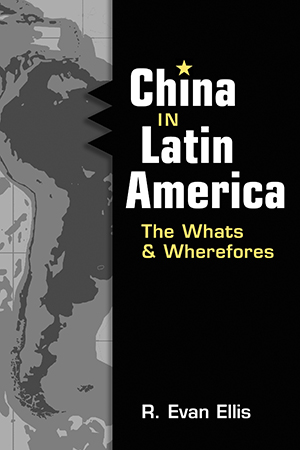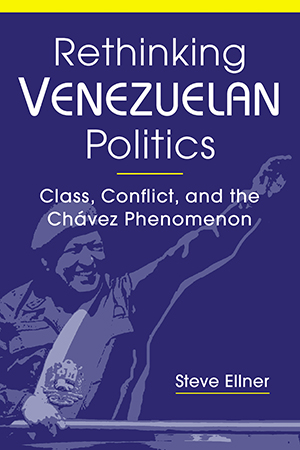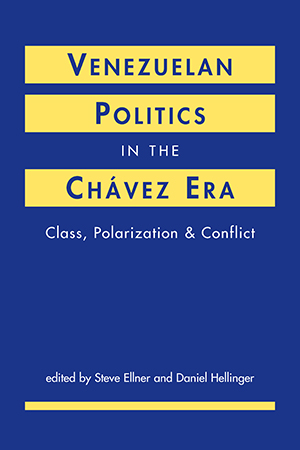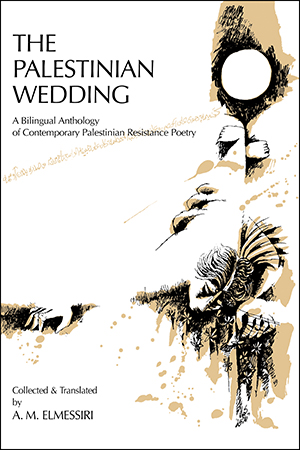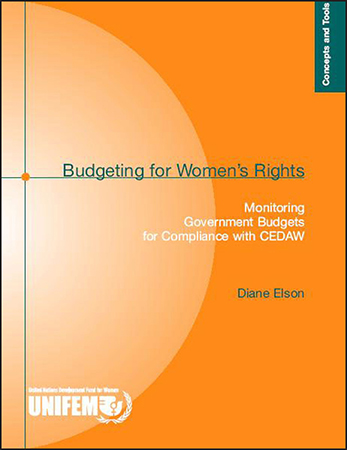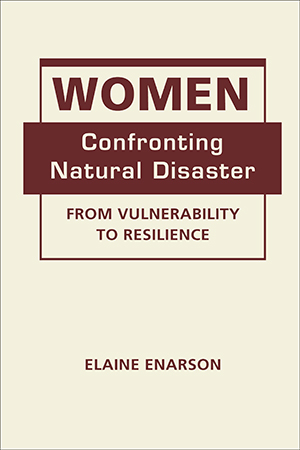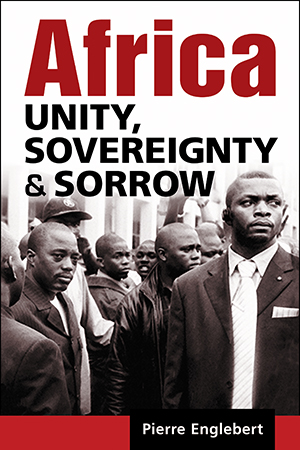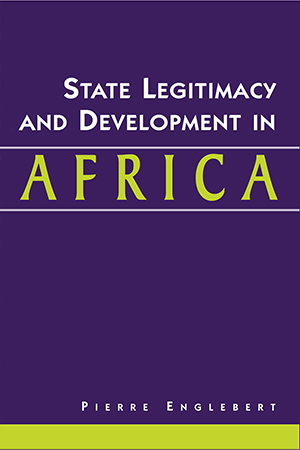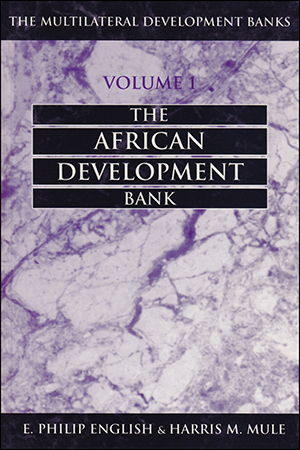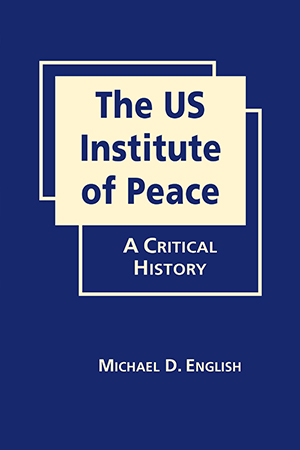BOOKS
With China on the minds of many in Latin America—from politicians and union leaders to people on the street, from business students to senior bankers—a number of important More >
In this fresh look at Venezuelan politics, Steve Ellner emphasizes the central significance of the country's economic and social cleavages. Ellner's journey through modern More >
The radical alteration of the political landscape in Venezuela following the electoral triumph of the controversial Hugo Chávez calls for a fresh look at the country's More >
The poems in this powerful bilingual collection range from the rhetorical lyricism of Tawfiq Zayyad to the complex, cosmic imagery of Walid al-Halis, from the romantic idiom of Salma More >
Natural disasters push ordinary gender disparities to the extreme—leaving women not only to deal with a catastrophe's aftermath, but also at risk for greater levels of domestic More >
Winner of the 2010 African Politics Conference Group Best Book Award! Though the demise of one or another African state has been heralded for nearly five decades, the map of the More >
Now Available in Paperback! Although it typically is taken for granted that African economies perform poorly, it is less well known that there are a small but significant number of success More >
The multilateral banks are powerful forces in the international community, providing loans of more than $250 billion to developing countries over the last half-century. The best-known of More >
Long a source of contention and ambiguity in Washington, the US Institute of Peace (USIP) is seen by some as a vital part of the US national security apparatus, by others as a counter to the More >



